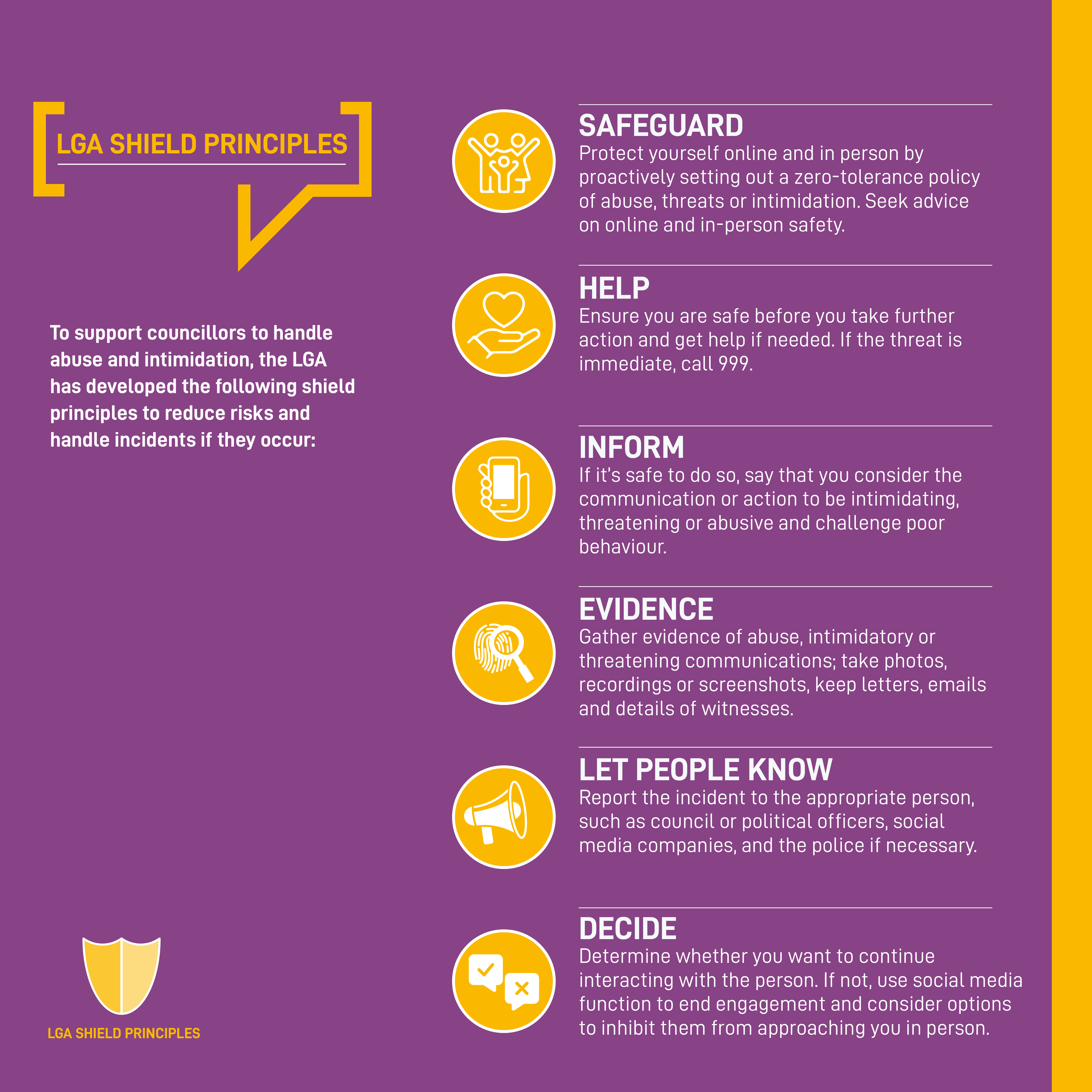The most important determining factor in deciding how to respond to intimidation is the impact it is having on you. Regardless of what others may think, if it is having an effect on you, then that is sufficient enough for you to take action.
Public abuse and intimidation can be triggered by particular events, like councils’ decisions, elections, or a misunderstanding of the role and responsibilities of councils and councillors. Perpetrators can be anyone; they may be angry residents, disgruntled members of the public, or activists on a specific issue.
However, the most important determining factor in deciding how to respond to intimidation is the impact it has on you as a councillor. Regardless of what others may think, if it is having an effect on you, then no matter who the perpetrator is or the rationale behind the aggression, it is sufficient enough for you to take action.
It is normal that individual councillor’s resilience to abuse will vary. Some councillors report having an extremely high tolerance to abuse due to past experiences and length of service. However, there is no expectation that councillors should have to accept or tolerate abusive behaviour and not dealing these issues can increase risk to councillor’s safety at a later date. Seeking support to handle these issues should be a personal decision and councillors should not be dissuaded from following their instinct to seek support and protection.
To support councillors to handle abuse and intimidation, the LGA has developed the following SHIELD principles. These principles provide councillors with a basic framework on which to base their engagement with the public to reduce the risks and handle incidents if they do occur. These principles are:
In general, it is useful to think strategically as well as personally. For example, you may wish to encourage your council to collect data and analyse the patterns of risk and resolution that you and others encounter as this can help improve policy and support over time. If patterns are identified they can be addressed strategically.
Engaging with residents with additional needs
Some residents seeking a councillor’s help may have additional needs, language barriers or behaviours which are unfamiliar. It is important that all residents are able to seek advice and representation from their councillor. Some residents may need adjustments to be made to allow them fair and equal opportunity to engage with you as their local representative. Advice on supporting people with additional needs is available from a number of organisations both locally and nationally and council officers especially in communities and social care directorates, or Health & Social Care Boards in Northern Ireland, may also be able to advice or provide assistance.
However, you should keep in mind that aggression or threats made against you are not acceptable under any circumstances and should be reported in the usual way.
Further reading on support for individuals with protected characteristics:
- Young Minds, National Autistic Society, Mind, Headway, Combat Stress and the Equalities and Human Rights Commission all publish and provide advice or support.
Due to the overlapping nature of acts of harassment, abuse and intimidation, this Guide groups the advice by the means used to cause harm, and the impact it has on councillors[1]: The next three sections will cover online abuse in brief, physical abuse and personal safety and psychological abuse and the impact on wellbeing.
[1] Bjarnegård, Elin & Pär Zetterberg. In Press.” Introduction: Politics, Violence, and Gender”, in Elin Bjarnegård and Pär Zetterberg (eds.), Gender and Violence against Political Actors. Philadelphia, PA: Temple University Press


